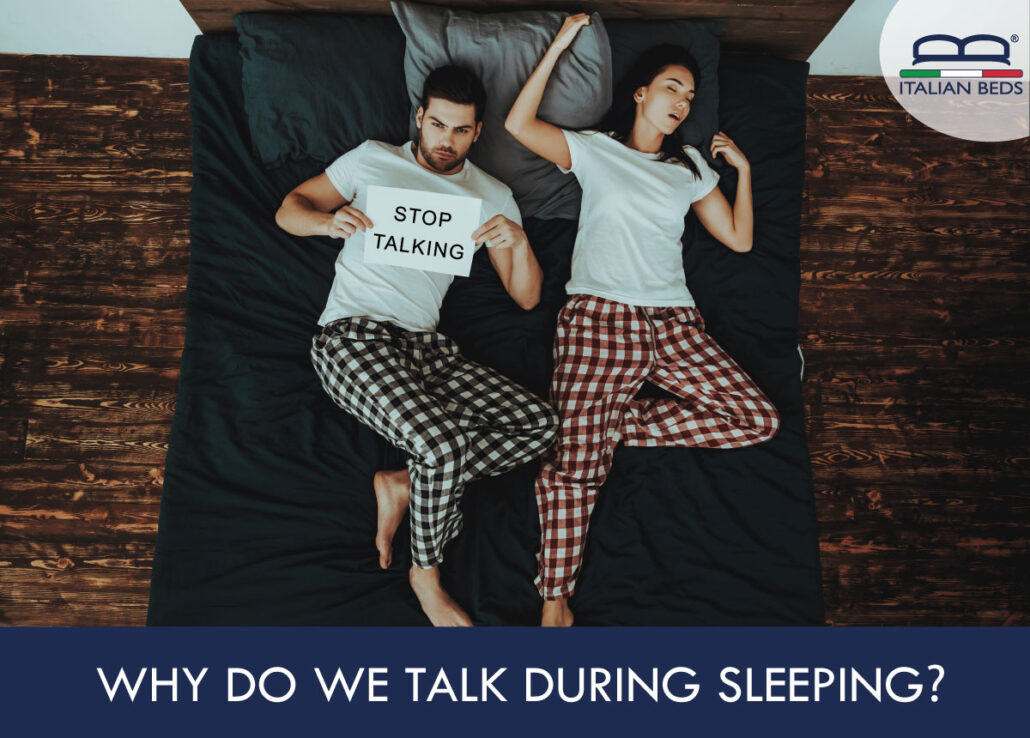
Has this ever happened to you?
Speaking during your sleep is a manifestation of the nocturnal activity of your brain, which continues to formulate thoughts without stopping.
This can occur both in the REM phase of sleep, in which the individual formulates sentences with complete meaning; and in the NON-REM phase with grunts and / or inarticulate sounds that are difficult to decipher.
Somniloquy is very common in children between the ages of 3 and 11 because they have not yet fully developed their brain coordination skills. However, this phenomenon also occurs in adults, albeit on rare occasions.
What are the main causes?
The reasons why we talk during the sleep are not absolute, but depend on numerous factors, such as, for example:
- REM sleep behavioral disorder (Rapid eye movement sleep Behavior Disorder – RBD) and pavor nocturnus; both are sleeping disorders, the symptoms of which are manifested are not only through dialogue, but also with laughter, shouts, swearing, gesticulations (punches, for kicks );
- genetic predisposition;
- specific drug therapies;
- stress;
- physical fatigue;
- feverish state.
What do we say during sleep?
A French study attempted to decipher it.
In fact, a survey was conducted based on a sample of 232 volunteers (aged between 49.5 ± 20 years), who slept in the laboratory for two consecutive nights; the researchers carried out a polysomnography on the subjects, that is, an exam that evaluates the parameters related to sleep: they recorded 883 episodes of speech in sleep, containing 59% of non-verbal expressions (mumbles, screams, whispers and laughter) and 3349 understandable words. It turns out that the ones who talk the most during sleep are men.
What are the possible solutions to prevent this phenomenon?
- Have a light meal for dinner;
- avoid using computers and / or other mobile devices, such as smartphones and tablets, just before going to bed;
- practice physical activity, to release the tension accumulated during the day, but without exaggerating: high intensity exercises circulate doses of adrenaline and do not favor the falling asleep phase.